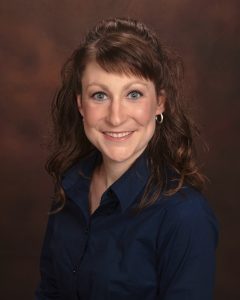
According to a new Education Study issued by the AARC this past spring, about 55 percent of RTs now have or are in the process of getting their bachelor’s degree. Do these degrees make therapists more valuable?
Renee Wunderley, BA, RRT, RRT-NPS, argues the answer is yes.

“When I was in respiratory therapy school, my professors were always instilling in our class to get your bachelor’s degree because it would make you more marketable in the future,” said Wunderley, a nearly 20 year veteran of the profession.
She heeded their advice, earning her bachelor’s degree from LaRoche College in Pittsburgh, PA, just five years after graduating from the RT program at Allegheny College of Maryland in May of 1999.
Invaluable education
Wunderley’s commitment to lifelong learning has helped her navigate her way through positions ranging from geriatric care staff therapist to neonatal transport RT.
“In the neonatal setting, specifically as a transport therapist, I had to work closely with the hospital staff at other institutions when picking up a critically ill infant,” she said. “The transport team was always held to a higher standard and viewed as the experts of the field by both the hospitals seeking our help and the parents who were in such a stressful and sometimes dreadful situation.”
She says her advanced degree helped her show that she is the kind of therapist who is always willing to learn more and striving to be her best.
“That’s the person that I want as my backup in a critical situation,” Wunderley said.
New trains of thought
For the past three years she has been putting her education to good use as the clinical research coordinator in the Asthma Institute at the University of Pittsburgh in Pittsburgh, PA.
“The aim of the Asthma Institute is to find better treatments for asthmatics, particularly severe asthmatics that aren’t responding to inhaled steroids and prednisone,” she said.
As the clinical research coordinator, she’s responsible for recruiting participants to be in the studies, scheduling study visit appointments, carrying out the study and the procedures in the study — i.e. PFTs, drawing blood, exhaled nitric oxide, sputum inductions, nasal brushings, etc. — and following up with participants.
Wunderley believes her bachelor’s degree helped her land the position and is providing her with the critical thinking abilities she needs to function effectively in this setting.
“In preparation for this new respiratory therapy role I had to acquire a whole new set of skills,” says Wunderley.
According to Wunderley, research requires clinicians to strictly follow the research protocol, rendering the clinical practice guidelines they typically follow null and void.
“I had to adopt a new train of thought to reprogram my instinctive skills,” Wunderley said.
She says she’s still learning new things nearly three years after taking on the job.
Relating to patients
Wunderley attributes her successful career to her education. She also says she’s received an immeasurable boost from her active involvement in her state respiratory society, crediting Pennsylvania Society for Respiratory Care Executive Director Tom Lamphere, BS, RRT, RRT-ACCS, FAARC, with guiding her along the way.
Her personal battle with asthma has played a part too.
“I understand what it feels like to struggle to breathe and hunger for air,” Wunderley said. “I can relate to my patients and participants, and while I can’t completely relate to what each individual goes through, as each asthmatic or lung patient is a little different, it helps me to build a rapport and become more credible in my patient’s and participant’s eyes.”





